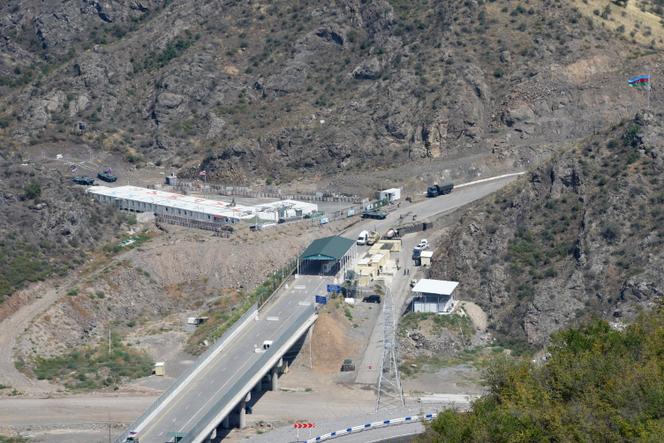


For almost two months, the citizens of Nagorno-Karabakh have been queuing as early as 4 am in the hope of finding bread. "People sign up on a list, but many wait many days without receiving anything," Louissa, who spoke on condition of anonymity, told Le Monde by phone. The 25-year-old legal expert lives in Stepanakert, the capital of the pro-independence enclave at the heart of a 30-year conflict between Azerbaijan and Armenia. "There's not enough food not to fall asleep half-starved. There's also the constant fear that a war will start again or something worse," the young woman added. "I talk to my family every night as if it were the last time."
The Lachin corridor, the only road linking this separatist enclave to Armenia, has been blocked by Baku since December 2022, causing food, medicine, essential goods, and fuel shortages. The humanitarian situation worsened abruptly when Azerbaijan stopped all traffic on July 11, citing security reasons. Since then, Nagorno-Karabakh has been a black hole where, with few exceptions, no one is allowed to visit, including officials, humanitarian aid workers, and journalists. But as the weeks go by, supplies are running low. On social media, photographs and videos of empty stores are multiplying.
As the stalemate continues, Arayik Harutyunyan, president of the self-proclaimed Nagorno-Karabakh Republic, tendered his resignation on Friday, September 1. "This decision is aimed, among other things, at guaranteeing strong public order and internal stability in Artsakh [the Armenian name for Nagorno-Karabakh]," he wrote on Facebook. It is necessary to change approach and measures, to show flexibility."
Rumors of his resignation had been circulating for weeks. "He was increasingly isolated and humiliated by the prolonged blockade," said Richard Giragosyan, a Yerevan-based researcher. Harutyunyan had been elected president of Nagorno-Karabakh in May 2020, four months before the latest war in the disputed enclave. The ceasefire, signed on November 9, 2020, under the aegis of Moscow, sealed Armenia's humiliating defeat by Azerbaijan. It also marked Russia's return to the region with the deployment of some 2,000 Russian peacekeepers. On paper, they are the ones who are supposed to ensure the circulation and security of the Lachin corridor, a mission that Moscow, preoccupied with the war in Ukraine, is no longer able to fulfill.
The president's resignation ushers in a new period of uncertainty. Since the end of the war, the situation of the 120,000 or so Nagorno-Karabakh Armenians – according to official estimates, a figure disputed by the Azeris – encircled by their enemies has continued to deteriorate. "People are very nervous and have dark thoughts," said Anna Musaielyan, another resident of Nagorno-Karabakh Le Monde contacted by phone. Already reeling from a winter punctuated by gas and electricity cuts imposed by Baku, this 23-year-old teacher, pregnant with a second child, is worried about shortages of infant formula, flour, sugar, olive oil, hygiene products, and soaring prices for other foodstuffs. "Even the ambulances are struggling to operate due to the lack of fuel. We live in anguish."
You have 59.81% of this article left to read. The rest is for subscribers only.
